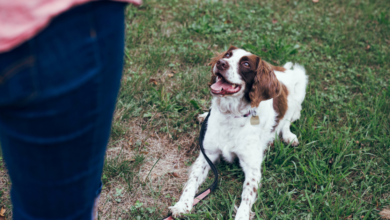The 5 most common health problems in Vizslas

The Vizsla, a breed known for its vitality, agility, and affectionate nature, hails from Hungary, where it was historically used as a hunting dog. While the breed is generally healthy, there are certain health conditions to which Vizslas are more susceptible. Being aware of these common health problems can help owners detect symptoms early and provide appropriate care.

-
Hip dysplasia
Hip dysplasia, an inherited disorder common in many dog breeds, particularly affects Vizslas. This condition occurs when the hip joint develops abnormally, causing discomfort, pain, and in severe cases, joint paralysis. Signs that your Vizsla may be suffering from hip dysplasia include difficulty getting up, being afraid to run, jump or climb stairs, and an altered gait, such as a ‘bunny-jumping’ pattern. They may also show signs of discomfort when the hip area is touched. Regular exercise and maintaining a healthy weight can help manage the condition, but in severe cases, surgery may be required.
-
epileptic
Vizslas is prone to idiopathic epilepsy, a neurological disorder that causes recurrent seizures. Symptoms include sudden uncontrollable shaking, flailing legs, loss of consciousness, and in some cases aggressive behavior. Seizures usually begin between 6 months and 5 years of age. It is important to consult a veterinarian at the first sign of seizure activity, as untreated epilepsy can lead to severe and frequent seizures. than. Although epilepsy is generally incurable, it can be controlled with medication.
-
Progressive retinal atrophy (PRA)
Progressive retinal atrophy is an inherited eye disorder that gradually leads to blindness. Early signs in Vizslas include night blindness and dilated pupils, progressing to a ‘glow’ in the eye caused by reflections from the back of the eye. Owners may notice their Vizsla becoming more hesitant in dim light or bumping into objects. Unfortunately, there is currently no cure for PRA, but antioxidant supplements can slow progression.
-
hypothyroidism
Hypothyroidism, an underactive thyroid gland, is another health problem that Vizslas often encounters. The thyroid regulates metabolism, and a deficiency can lead to symptoms such as weight gain, lethargy, skin infections, and hair loss, especially in the tail (“rat tail”). If you notice your Vizsla showing signs of hypothyroidism, it is important to consult your veterinarian. This condition is treatable with hormone replacement therapy, which often improves symptoms significantly.
-
allergy
Finally, Vizslas are prone to allergies to both food and the environment. Food allergy symptoms can include gastrointestinal problems such as vomiting and diarrhea, while skin problems such as itching, redness, and heat can be a sign of environmental allergies. Vizsla with allergies may also chew their feet or rub their face excessively. If you suspect your Vizsla has allergies, contact your veterinarian, who can help identify the allergen and recommend a treatment plan.
In summary, although the Vizslas is generally a healthy breed, it is important for owners to be on the lookout for these common health problems. Regular veterinary checkups, a balanced diet and proper exercise are vital to maintaining Vizsla’s health. Early awareness and detection can ensure your Vizsla leads a healthy, happy life.




